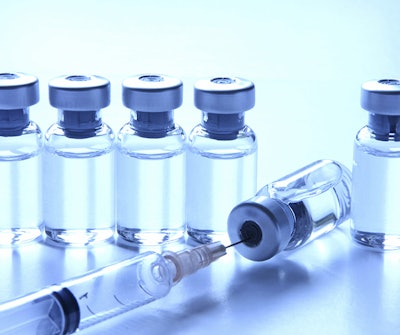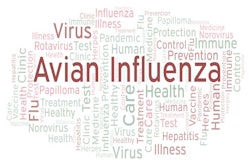
A new vaccine could protect chickens against future outbreaks of highly pathogenic avian influenza (HPAI) at hatch.
The potential avian flu vaccine activates antigens to create a protective immune response in the bird. It can also avoid interference from maternal antibodies. Typically, antibodies help boost the immunity of the chicks at hatch, however, they can also decrease the effectiveness of vaccination.
“Maternally derived antibodies interfere with vaccination by masking epitopes of the vaccine antigen in a manner that does not provide protection against the antigen-bearing virus. This masking hinders the ability of the host immune system to generate neutralizing antibodies to the vaccine antigen,” Munir Iqbal, Head of the Pirbright Institute’s Avian Influenza Virus group, said.
In a study published in npj Vaccines, the new vaccine design protected chicks against the H9N2 strain of avian influenza and was not affected by maternal antibodies.
“The active ingredient in conventional vaccines are viruses that have been inactivated to be non-infectious. The active ingredient in this vaccine is protein derived from a component of the same virus. At no stage, is it infectious,” explained Iqbal.
“This technology is a more targeted and direct approach of immunization compared to conventional inactivated vaccines.”
The technology, known as a targeted antigen delivery vaccine, is also easier and less costly to produce than previous avian flu vaccines, the researchers said.
HPAI outbreak in the U.S.
This discovery could one day aid poultry producers in the U.S., who are currently experiencing the worst outbreak of HPAI since 2015.
So far in 2022, HPAI has been confirmed in commercial poultry flocks in the following states: North Dakota, Kentucky, Delaware, Maryland, Missouri, Iowa, Wisconsin, South Dakota, Indiana, North Carolina, Minnesota and Texas. The Texas case involved pheasants. The virus has also been confirmed in the Canadian provinces of Ontario and Nova Scotia.
To learn more about HPAI cases in North American commercial poultry flocks, see an interactive map on WATTPoultry.com.
Read our ongoing coverage of the global avian influenza outbreak.
















